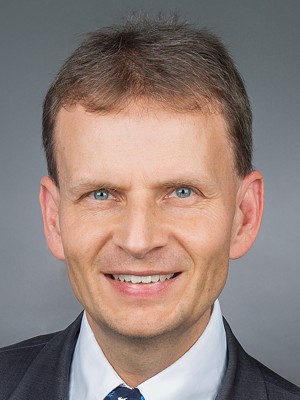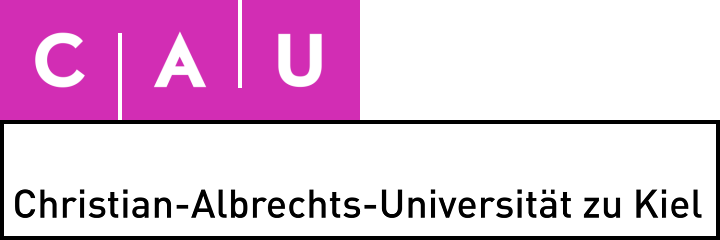Project Z2 - Magnetoelectric Sensor Characterization

The main objective of this service project is the metrological characterization of individual magnetoelectric (ME) sensors produced in the A projects and ME sensor systems integrated in the B projects. The complex nature of sensor fabrication inevitably leads to variations in the performance of each particular sensing element. This project evaluates these variations in quantitative sensor metrics and provides continuous feedback to the manufacturing project (Z1), to the sensor projects (A projects) and application projects (B projects) and support will be provided for ME sensor system integration and validation. Quantitative metrics and measurement techniques are implemented, including, but not limited to, amplitude and phase response, equalized noise amplitude spectral density, input-output-amplitude-relation, limit-of-detection (LOD), limit-of-quantification (LOQ), bandwidth and dynamic range. In the new funding period, the scope of these metrics will be extended and fine-tuned to meet on the edge requirements. New metrics will be formulated based on an in-depth analysis of the specific requirements and performance characteristics of current biomedical applications. In addition, the evaluation will include complete ME sensor systems, addressing the need for successful biomedical integration. This progression results from the fact that successful biomedical integration depends on the effective performance of the entire sensor system. To facilitate a more comprehensive quality assurance, the project continues its productive collaboration with the Physikalisch-Technische Bundesanstalt (PTB), the leading metrology institute in Germany. Within this collaboration, existing evaluation metrics will be assessed for a thorough comparison, with the aim to fill the current void in technical standards for state-of-the-art magnetometers evaluation. In this final phase of the CRC, a comprehensive investigation prioritizing the initialization and operating point conditioning of ME sensor systems is essential to further improve the performance of ME sensors for their specific medical applications, considering the diversity of ME sensors by fabrication, e.g., considering fabrication-related scattering of the device parameters and sensor characteristic. Comprehensive sensor selection support will be provided to all application projects to ensure optimal system operation. This will include guidance during the selection process, technical advice on functionality and assistance with integration of magnetoelectric sensor elements into sensor systems, multichannel use, or appropriate use in medical studies. Ongoing collaborations and feedback will further refine and improve the quality of already available ME sensors. The currently available low-noise hardware, including amplifiers, signal generators, and interfaces, will be continuously upgraded and extended in close collaboration with project B1. In response to the increasing demand for additional sensors in research area B, the project aims to create a systematic toolkit of readout circuits that will serve as a basis for the general reproduction and reuse of ME electronic readout circuits. In summary, the primary objective of this service project is to evaluate individual ME sensors and resulting ME sensor systems by determining variations in sensor performance. To this end, a wide range of quantitative metrics and measurement techniques will be employed, extended and refined to meet evolving requirements, particularly in the context of biomedical applications. In addition, the project aims to improve the evaluation of ME sensor systems and establish technical magnetometer standards by collaborating with leading metrology institutes, such as PTB, to improve the performance and integration of magnetic field sensor for specific medical applications.
Involved Researchers
| Person |
Role |
 |
Prof. Dr.-Ing. Michael Höft
Electrical Engineering
Microwave Group |
Project lead |
 |
Prof. Dr. Robert Rieger
Electrical Engineering
Networked Electronic Systems |
Project lead |
 |
Dr.-Ing. Eric Elzenheimer
Electrical Engineering
Microwave Group |
Postdoctoral researcher |
Role within the Collaborative Research Centre
Project Z2 will participate in the focus groups F3 - Comparison of Sensor Concepts and F6 - Biomedical Applications. Specifically, this project will collaborate closely with all sensor-producing projects in terms of the
characterization of different types of ME sensors. Collaborations with the following projects are planned:
| Collaborations |
| A1 (Magnetostrictive Multilayers for Magnetoelectric Sensors) |
ME sensor characterization/evaluation. |
| A2 (Mechanically Soft Micro and Macrocomposite
for Wearable Devices) |
Support with sensor characterization/evaluation. |
| A4 (∆E-Effect Sensors) |
Exploring new concepts and implementations to innovate and enhance the performance of
electronics. |
| A7 (Electrically Modulated Magnetoelectric Sensors) |
ME sensor characterization. |
| A8 (Modelling of Magnetoelectric Sensors) |
Support for SAW characterization/evaluation measurements. |
| A9 (Surface Acoustic Wave Magnetic Field Sensors) |
SAW sensor characterization at carrier frequencies up to the GHz range. |
| A10 (Magnetic Noise of Magnetoelectric Sensors) |
Conduction of noise density measurement. |
| B1 (Sensor Noise Performance and Analogue System Design) |
Takeover of analogue hardware concepts of individual sensors for sensor characterization and related front ends for biomedical applications. |
| B2 (Digital Signal Processing) |
Takeover of digital signal processing routines for biomedical applications, assess online
calibration during biomedical measurement and ME cantilever actuator characterization. |
| B9 (Magnetoelectric Sensors for Movement Detection and Analysis) |
Hardware support. |
| B10 (Magnetoelectric Sensor Systems for Cardiologic Applications) |
Hardware support. |
| B12 (Bioinspired Nanocomposites for Early Detection
of Complications in Gastrointestinal Surgery) |
Hardware support. |
| B13 (Magnetoelectric 3D Mapping in Gastrointestinal Diagnostics) |
Hardware support. |
| Z1 (MEMS Magnetoelectric Sensor Fabrication) |
ME sensor characterization/evaluation and ME cantilever actuator characterization. |
Project-related Publications
|
J. Arbustini, E. Elzenheimer, H. Wolframm, E. Spetzler, M. Kuhn, F. Schlichting, E. Quandt, J. McCord, M. Höft, R. Rieger, A. Bahr: Analog Demodulation for Electrically Modulated ME Sensors: A Signal Integrity Analysis and Evaluation Approach, IEEE Sensors Journal, vol. 25, no. 8, pp. 12828-12841, 2025. |
|
N. Ziehm, J. Arbustini, E. Elzenheimer, M. Samadi, G. Barbieri, M. Gerken, M. Höft, R. Rieger, A. Bahr: MEMS-based Narrow-Bandwidth Magnetic Field Sensors: Preliminary Assessment of Prototypes regarding Coercivity, Remanence, and Sensitivity, Biomedical Engineering / Biomedizinische Technik, 2025. |
|
E. Elzenheimer, S. Knappe-Grüneberg, J. Zerfowski, W. Evans, F. Grüneberg, M. Höft, S. R. Soekadar, S. Robinson, J. Voigt: Metrics and Experimental Test Bench for Assessing Highly Sensitive Magnetometers in Research, IEEE Sensors Journal, vol. 25, no. 2, pp. 2432-2455, 2025. |
|
L. Zimoch, S. Schröder, E. Elzenheimer, S. Kaps, T. Strunskus, F. Faupel, M. Höft, R. Adelung: Electret Integrated Magnetic Field Sensor Based on Magnetostrictive Polymer Composite with nT Resolution, Scientific Reports, vol. 15, 1561, 2025. |
|
C. McGuinness-Rodriguez, J. Arbustini, P. Mendoza-Ponce, E. Elzenheimer, A. Morales-Zamora, M. Höft, R. Rieger, A. Bahr: Resource-efficient FPGA-based I/Q-Demodulator Detects 0.0005 Modulation Index with 9.5 dB SNR for Converse ME Sensors, IEEE 42nd Central America and Panama Convention (CONCAPAN XLII), San Jose, Costa Rica, 2024. |
|
A. Morales-Zamora, J. Arbustini, P. Mendoza-Ponce, E. Elzenheimer, C. McGuinness-Rodriguez, M. Höft, R. Rieger, A. Bahr: Lossless 1.6 Mbits/s FPGA-based Real-Time Data Transmission System for Converse ME Sensors, IEEE 42nd Central America and Panama Convention (CONCAPAN XLII), San Jose, Costa Rica, 2024. |
|
E. Spetzler, B. Spetzler, D. Seidler, J. Arbustini, L. Thormählen, E. Elzenheimer, M. Höft, A. Bahr, D. Meyners, J. McCord: On the Origin of Signal and Bandwidth of Converse Magnetoelectric Magnetic Field Sensors, Advanced Sensor Research, 4: 2400109, 2024. |
|
M. Yalaz, E. Elzenheimer, H. Wolframm, S. Knappe-Grüneberg, M. Höft, G. Deuschl, A.K. Helmers, T. Sander: Response of Lock-In Detection Based Optically Pumped Magnetometers to High Bandwidth Magnetic Signals, IEEE Sensors Letters, vol. 8, iss. 8, 2024. |
|
L. Thormählen, P. Hayes, E. Elzenheimer, E. Spetzler, G. Schmidt, M. Höft, J. McCord, D. Meyners, E. Quandt: Low-noise Inverse Magnetoelectric Magnetic Field Sensor, Applied Physics Letters, 124 (17), 172402, 2024. |
|
E. Engelhardt, E. Elzenheimer, J. Hoffmann, C. Meledeth, N. Frey, G. Schmidt: Non-Invasive Electroanatomical Mapping: A State-Space Approach for Myocardial Current Density Estimation, Bioengineering, 10(12), 1432, 2023. |
|
M. Gerhardt, L. Zimoch, C. Dorn, E. Elzenheimer, C. Bald, T. Lerg, J. Hoffmann, S. Kaps, M. Höft, G. Schmidt, S. Wulfinghoff, R. Adelung: Self-powered Elementary Hybrid Magnetoelectric Sensor, Nano Energy, vol. 115, 108720, 2023. |
|
M. Gerhard, L. Zimoch, C. Dorn, E. Elzenheimer, C. Bald, T. Lerg, J. Hoffmann, S. Kaps, M. Höft, G. Schmidt, S. Wulfinghoff, R. Adelung: Self-powered Elementary Hybrid Magnetoelectric Sensor, Nano Energy, vol. 115, 108720, 2023. |
|
J. Hoffmann, C. Bald, T. Schmidt, M. Boueke, E. Engelhardt, K. Krüger, E. Elzenheimer, C. Hansen, W. Maetzler, G. Schmidt: Designing and Validating Magnetic Motion Sensing Approaches with a Real-time Simulation Pipeline, Current Directions in Biomedical Engineering, vol. 9, no. 1, 455-458, 2023. |
|
E. Engelhardt, E. Elzenheimer, J. Hoffman, T. Schmidt, A. Zaman, N. Frey, G. Schmidt: A Concept for Myocardial Current Density Estimation with Magnetoelectric Sensors, Current Directions in Biomedical Engineering, vol. 9, no. 1, 89-92, 2023. |
|
H. Wolframm, J. Hoffmann, R. Burgardt, E. Elzenheimer, G. Schmidt, M. Höft: PCB Coil Enables In Situ Calibration of Magnetoelectric Sensor Systems, Current Directions in Biomedical Engineering, vol. 9, no. 1, 567-570, 2023. |
|
E. Elzenheimer, P. Hayes, L. Thormählen, E. Engelhardt, A. Zaman, E. Quandt, N. Frey, M. Höft, G. Schmidt: Investigation of Converse Magnetoelectric Thin Film Sensors for Magnetocardiography, IEEE Sensors Journal Print ISSN, pp. 5660-5669, 2023. |
|
J. Muñoz, J. Arbustini, E. Elzenheimer, M. Höft, A. Bahr: Digital Approaches on Frequency Tuning for Magnetoelectric Sensors, ICECS, 29th IEEE International Conference on Electronics, Circuits & Systems, Glasgow, Scotland, 2022. |
|
H. Wang, J. Arbustini, E. Elzenheimer, V. Schell, M. Höft, E. Quandt, G. Schmidt, H. Heidari, A. Bahr: Study of Chopping Magnetic Flux Modulation on Surface Acoustic Wave Magnetic Sensor, ICECS, 29th IEEE International Conference on Electronics, Circuits & Systems, Glasgow, Scotland, 2022. |
|
J. Arbustini, J. Muñoz, H. Wang, E. Elzenheimer, J. Hoffmann, L. Thormählen, P. Hayes, F. Niekiel, H. Heidari, M. Höft, E. Quandt, G. Schmidt, A. Bahr: MEMS Magnetic Field Source for Frequency Conversion Approaches for ME Sensors, BMT2022 , Joint Annual Conference of the Austrian, German and Swiss Societies for Biomedical Engineering, 2022. |
|
E. Engelhardt, A. Zaman, E. Elzenheimer, N. Frey, G. Schmidt: Towards Analytically Computable Quality Classes for MCG Sensor Systems, BMT 2022, Joint Annual Conference of the Austrian, German and Swiss Societies for Biomedical Engineering, 2022. |
|
E. Elzenheimer, C. Bald, E. Engelhardt, J. Hoffmann, P. Hayes, J. Arbustini, A. Bahr, E. Quandt, M. Höft, G. Schmidt: Quantitative Evaluation for Magnetoelectric Sensor Systems in Biomagnetic Diagnostics, MDPI Sensors, vol. 22, no. 3, 1018, 2022. |
|
J. Hoffmann, E. Elzenheimer, C. Bald, C. Hansen, W. Maetzler, G. Schmidt: Active Magnetoelectric Motion Sensing: Examining Performance Metrics with an Experimental Setup, MDPI Sensors, vol. 21, no. 23, 8000, 2021. |
|
P. Durdaut, C. Müller, A. Kittmann, V. Schell, A. Bahr, E. Quandt, R. Knöchel, M. Höft, J. McCord: Phase Noise of SAW Delay Line Magnetic Field Sensors, Sensors, vol. 21, issue 16, 5631, 2021. |
|
M. Yalaz, A. Teplyuk, G. Deuschl, M. Höft: Dipole Fit Localization of the Deep Brain Stimulation Electrode using 3D Magnetic Field Measurements, IEEE Sensors Journal, vol. 69, issue 7, 2020. |
|
M. Ö. Özden, A. Teplyuk, Ö. Gümüs, D. Meyners, M. Höft, M. Gerken: Magnetoelectric Cantilever Sensors under Inhomogeneous Magnetic Field Excitation, AIP Advances, vol. 10, issue 2, 025132, 2020. |
|
P. Hayes, M. Jovičević Klug, S. Toxværd, P. Durdaut, V. Schell, A. Teplyuk, D. Burdin, A. Winkler, R. Weser, Y. Fetisov, M. Höft, R. Knöchel, J. McCord, E. Quandt: Converse Magnetoelectric Composite Resonator for Sensing Small Magnetic Fields, Scientific Reports, vol. 9, 16355, 2019. |
|
M. Yalaz, A. Teplyuk, M. Muthuraman, G. Deuschl, M. Höft: The Magnetic Properties of Electrical Pulses Delivered by Deep Brain Stimulation Systems, IEEE Trans on Instrumentation and Measurement, vol. 69, issue 7, 2019. |








